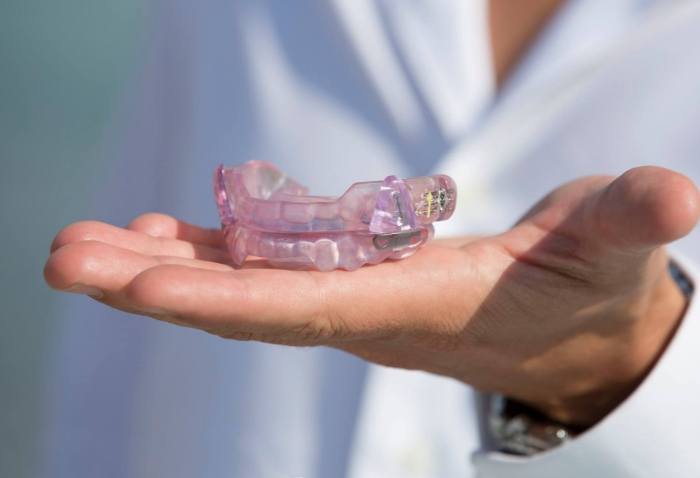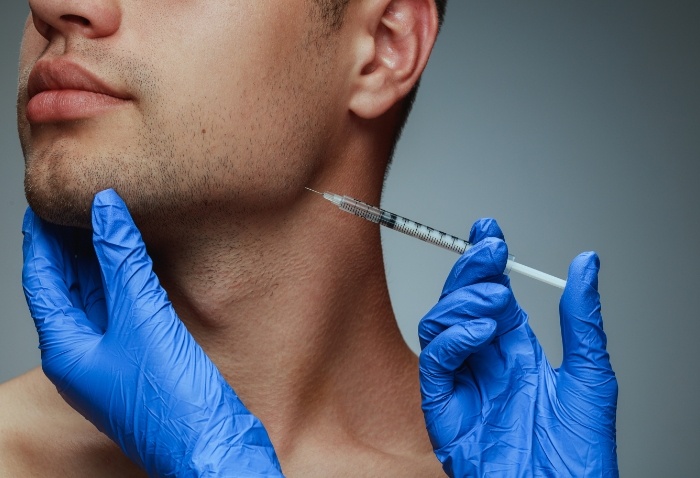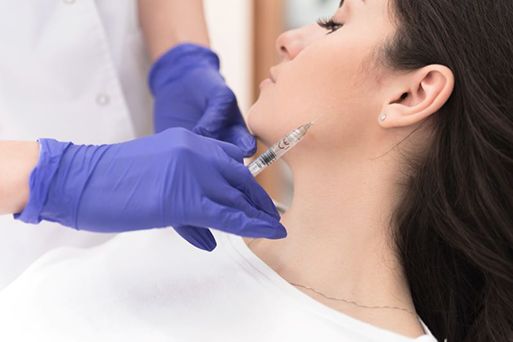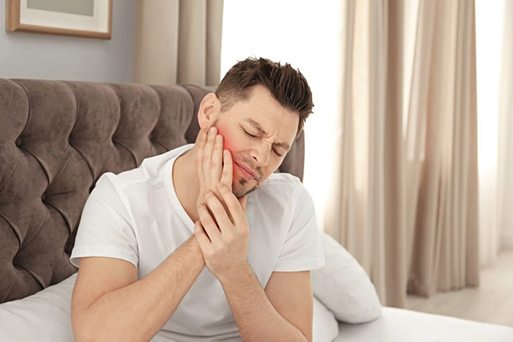TMJ Treatment Athens
Relief for Your Aching Jaw
It’s perfectly normal that your body will feel sore at times. Nevertheless, make sure you don’t ignore lasting or severe jaw pain. This sign and similar ones may indicate you have a TMJ disorder. Such a problem would be unpleasant and put your mouth at risk. Instead, visit us for qualified TMJ treatment in Athens. Find out more by reading below or by booking a consultation soon.
Why Choose Athens Dental Associates for TMJ Treatment?
- Dentist Experienced in Diagnosing & Treating TMD
- Treatment Can Stop Unconscious Teeth Grinding
- BOTOX Injections for TMD/Headaches
Symptoms of TMJ Disorder

TMJ disorder (or TMD) is a condition that affects your jaw joints. The symptoms are many and varied. The most common ones include:
- Persistent jaw pain
- Headaches and/or migraines
- Difficulty opening or closing the mouth
- Jaw popping or clicking
- Changes in how your teeth align
- Ringing in your ears (i.e., tinnitus)
- Earaches
TMJ Treatment Options

At your consultation visit, we’ll closely assess your jaw joints and mouth. We may even take dental X-rays or CBCT images as part of this process. Afterward, we’ll review our findings and suggest the most suitable treatment options.
Equilibration/Occlusal Adjustments

If your TMJ disorder stems from an alignment issue, we could give you an equilibration. This treatment – also known as occlusal adjustment – is a series of changes to your bite. It slightly reshapes your teeth so the top and bottom arches fit better together. That way, your TMJ would face less excessive pressure.
Occlusal Splints

Another option to consider is an occlusal splint. It’s a kind of mouthguard that reduces your face’s muscle tension. In other words, wearing it would lessen the pressure on your jaw joints. (It’s recommended that you only wear the splint at night.) You’ll then enjoy far fewer TMJ disorder symptoms.
BOTOX for TMJ Treatment

While BOTOX is a well-known cosmetic service, you might be surprised to learn that it can also play a role in treating TMJ disorder (TMD). Getting the injections causes the tense muscles in your face to relax. You may then experience relief from jaw pain, headaches, and other kinds of discomfort. These results can last for several months at a time. BOTOX is often used alongside other TMJ therapies to provide optimal outcomes.
What Is BOTOX?

BOTOX is the brand name of a diluted form of botulinum toxin, a specific type of bacteria that is classified as a neurotoxin. Although that might sound intimidating, BOTOX is generally very safe when used in medical settings.
It works by temporarily paralyzing the muscles into which it is injected. In turn, this forces the muscles to relax. When used as a treatment for TMD, BOTOX can relieve the pain and soreness that stem from having overworked muscles around the jaw.
The treatment process for BOTOX is fast, and results may start to become noticeable within 5 – 10 days. The pain relief may last for 3 – 6 months at a time.
Are You a Good Candidate for BOTOX for TMJ Treatment?

BOTOX might be able to help you if you are experiencing common symptoms of TMD, such as:
- Pain and tenderness in and around the jaw.
- Limited jaw movement.
- Clicking and popping in the jaw joint.
- Frequent headaches or migraines.
- Changes in your bite.
- Difficulty chewing.
- Pain in your neck and upper back.
BOTOX may be especially helpful for you if your TMD is associated with bruxism (teeth grinding and clenching). It can relax the muscles that cause bruxism and thereby reduce soreness and pain.
How Can BOTOX Treat TMJ Disorder?

BOTOX is a common treatment for TMJ disorder, and many patients have experienced success with it. For example, one study found that BOTOX led to improvements for 90% of patients with TMD symptoms.
Of course, it is important to note that BOTOX is a measure for pain relief, rather than a way to address the underlying cause of TMD. That is why it is often best used alongside therapies that do address the cause of symptoms, such as an occlusal splint or equilibration.
TMJ Treatment FAQs
Can TMJ Be Cured Permanently?
There are several reasons that your temporomandibular joints (TMJ) might be feeling stiff, sore, or inflamed, and some are more serious than others. For example, if you’ve been feeling stressed at work lately, the ache might be caused by anxiously clenching your jaw in response. However, it could also be due to tooth or bite misalignments that could harm your oral health if they progress unaddressed.
Your discomfort might fade if the underlying cause is temporary, but many patients have issues requiring long-term management. Furthermore, some TMJ treatments, like BOTOX injections, provide temporary results that can provide short-term relief but must be repeated periodically.
How Long Does It Take for a TMJ Splint to Work?
Occlusal splints are oral appliances intended to fit snugly over your teeth at night while you sleep. These devices provide an added layer of cushion between your upper and lower arches so that even if you clench your teeth, they don’t close together completely. This gives your temporomandibular joints enough of a reprieve to heal and recover, reducing day-time symptoms associated with TMJ.
Typically, you can expect to notice significant improvements within six weeks of regularly wearing your splint. However, it might take between three to six months for it to fully resolve your discomfort, depending on the severity of your condition.
Is BOTOX for TMJ Safe?
BOTOX is the brand name for a product created from botulinum toxin produced by the Clostridium botulinum bacterium. In larger doses, this substance can be lethal, so many patients near Athens question whether it’s safe to inject into their face or jaw.
Thankfully, this treatment is considered safe for most people when administered by a trained and licensed provider. Only a small amount of the toxin is included in TMJ injections, so it’s not usually considered risky. However, some patients develop side effects like:
- Temporary bruising, redness, and tenderness at the injection site.
- Mild nausea.
- Headaches that fade after 48 hours.
- Respiratory infection or flu-like symptoms.
How Long Does Occlusal Equilibration Take for TMJ?
Occlusal adjustments/equilibration is a popular way to reduce TMJ-related symptoms in patients with alignment issues. This treatment involves removing a small amount of enamel in strategic locations to help your teeth fit together correctly when you bite down. The length of time it takes to notice improvements depends significantly on your unique circumstances.
For example, some patients find total relief after one or two adjustments, while others require three or more, in extreme cases, to evenly distribute their bite force to achieve similar results.

